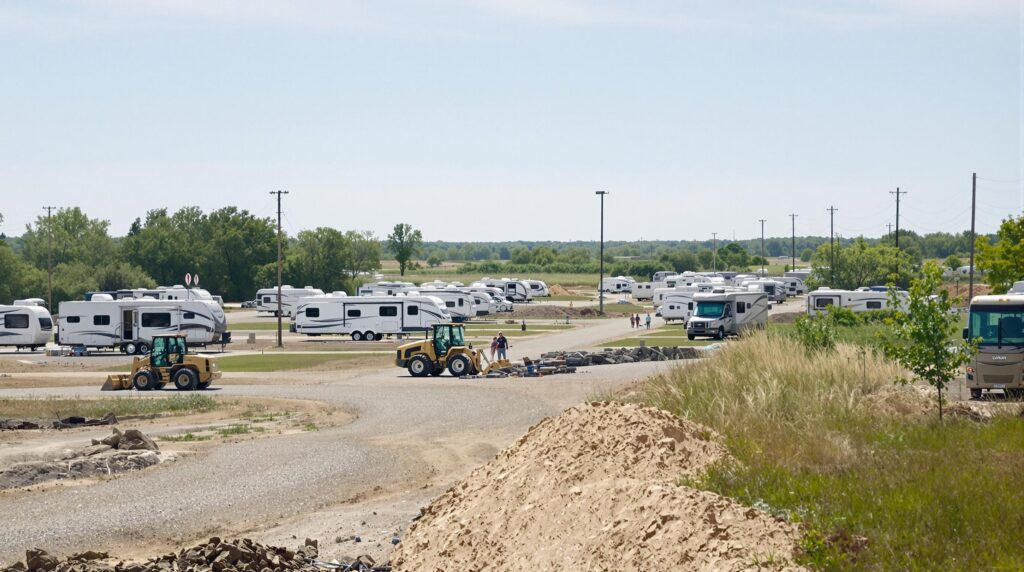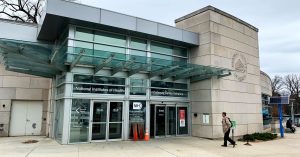Columbia County has moved to restrict the expansion of recreational vehicle parks and campgrounds based on concerns about rising visitor numbers and limited infrastructure. Public hearing transcripts show that discussions centered on the potential overextension of septic systems and groundwater capacity if future developments continued unmanaged.
According to recently released county meeting records, officials who spoke at these sessions cited new assessments suggesting that road networks and water facilities could face significant strain from increased occupancy. Board of County Commissioners documents indicate that preserving public health and safeguarding natural resources were top priorities when designing these measures.
The Board approved amendments that focus on preventing overuse of services such as water supply, wastewater treatment, and stormwater capacity. Meeting records describe how those who contributed to the public sessions supported guidelines that help protect the county’s resources without blocking tourism entirely.
Participants in the county’s review process noted that local systems might struggle with seasonal spikes in RV park traffic. No firm timeline or capacity thresholds have been formally published, but discussions point to the need for steady growth that aligns with available resources rather than unregulated expansions.
Existing RV park owners, based on the same transcripts, remain under prior regulations until officials finalize additional steps for transitioning them to the new framework. No detailed enforcement strategy has been announced. County records do not clarify how operators might be penalized if their properties exceed established resource limits once the full guidelines take effect.
County meeting notes reference the importance of coordinating with state environmental agencies and engineering experts. While future updates could set phased compliance schedules, the precise language for construction pacing or proof-of-capacity requirements has not been adopted. It remains unknown whether financing options like municipal bonds or impact fees will factor into final decisions.
County Commissioner Rocky Ford voted against the Land Development Regulations change on RV parks, arguing that it favored existing businesses by restricting new entrants. He described it as picking “winners and losers” during a board session covered in original reporting. No formal reply to his objections has been posted to board records.
Many RV park and campground operators across the broader industry incorporate eco-friendly measures that can reduce overall utility burdens. Installing water-saving fixtures, permeable materials, and renewable energy systems has been shown in regional environmental surveys to lower operating costs. Simple recycling programs further limit waste accumulation and ease pressure on local disposal facilities.
Routine tasks such as clearing rain gutters and servicing wastewater units help reduce the risk of major maintenance problems and support more efficient park performance. A site layout that works with natural contours can help curb erosion, and buffer zones near lakes or streams protect water quality by channeling runoff responsibly.
Digital platforms have taken hold at many modern RV parks across the region, offering tools for automated check-ins and real-time updates on safety guidelines or property rules. Technology surveys confirm that user-friendly reservation systems can shorten wait times and reduce administrative overhead. Password-protected Wi-Fi networks and regular cybersecurity audits increasingly serve as a baseline for protecting both customer data and operations.
By integrating such digital reservations and resource monitoring, owners often find it easier to balance occupancy with available utilities. These systems allow them to plan for visitor fluctuations more effectively while meeting local regulations that encourage responsible growth. In public discussions, participants suggested that improved technology might also provide seamless access to relevant emergency announcements.
No formal plan has been released on whether local leaders will require widespread adoption of such technology solutions to meet the county’s overarching objectives. Board minutes note that further sessions are planned to assess how Columbia County can safeguard infrastructure while supporting the economic benefits of outdoor tourism. Officials have not set a date for finalizing next steps, but the Board appears focused on long-term sustainability when revisiting these issues.







